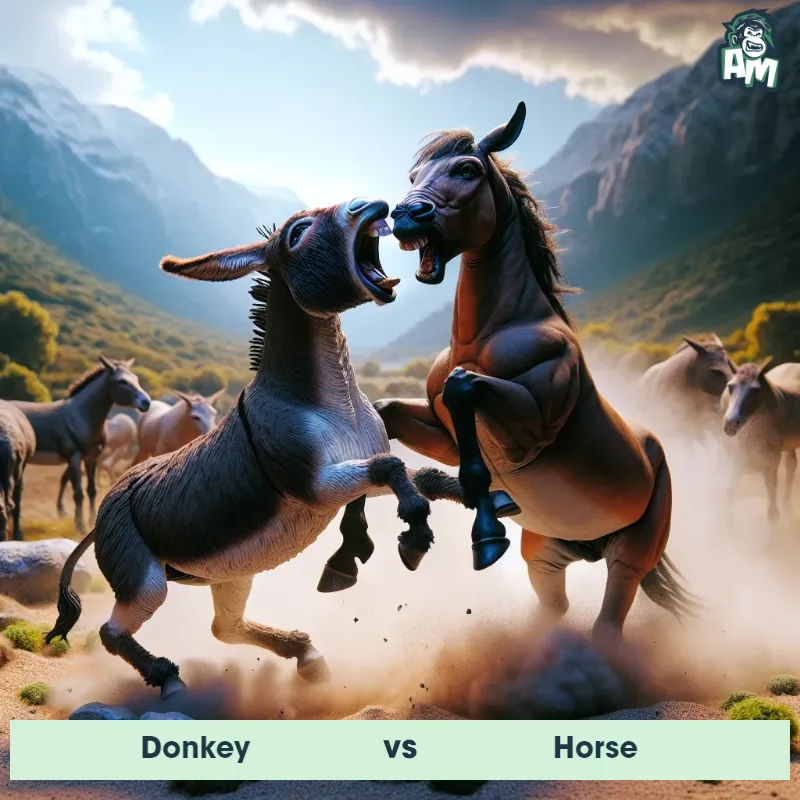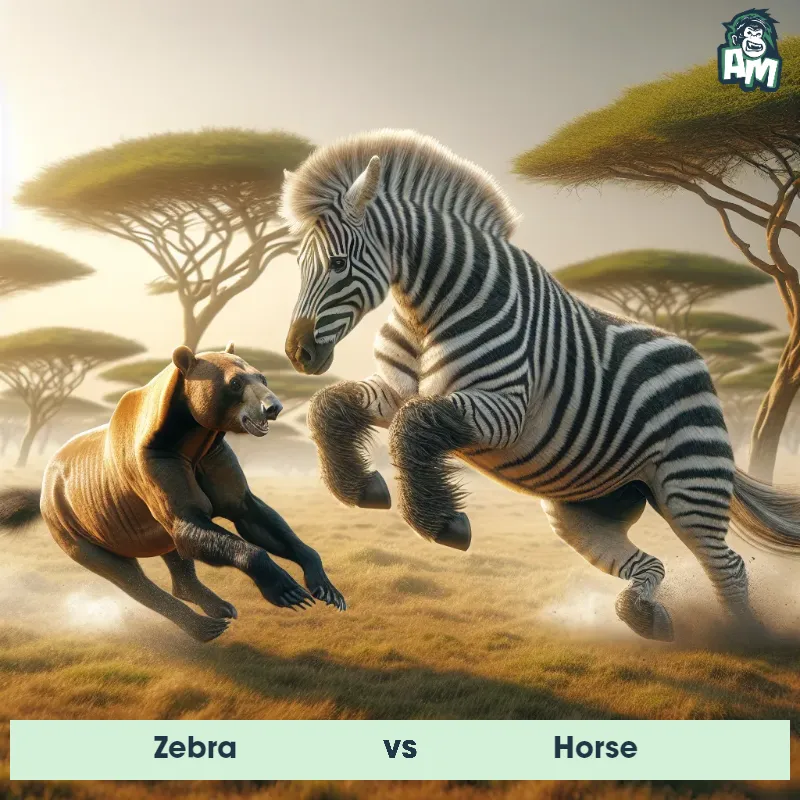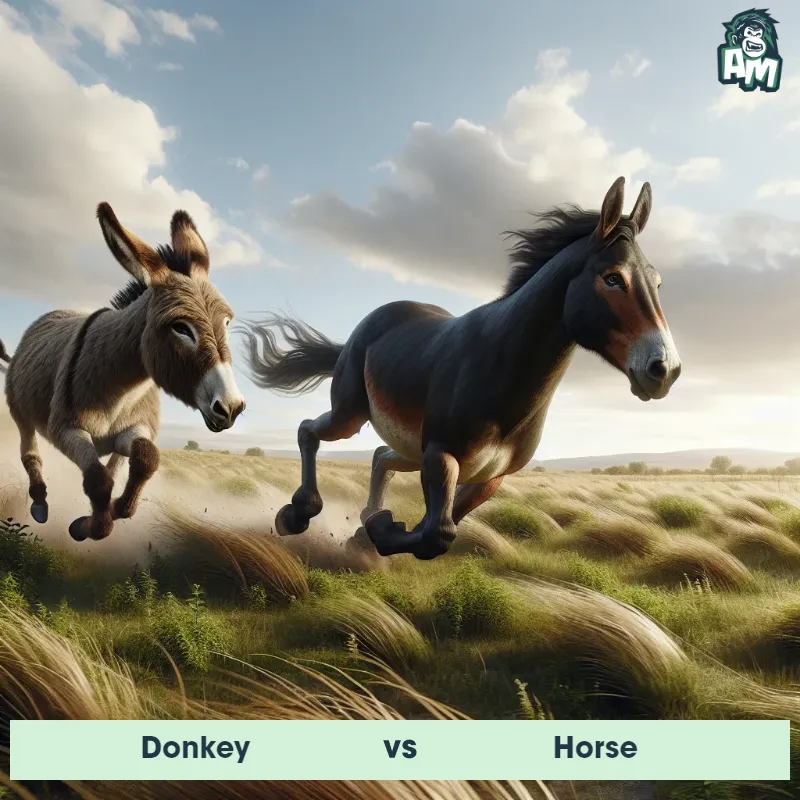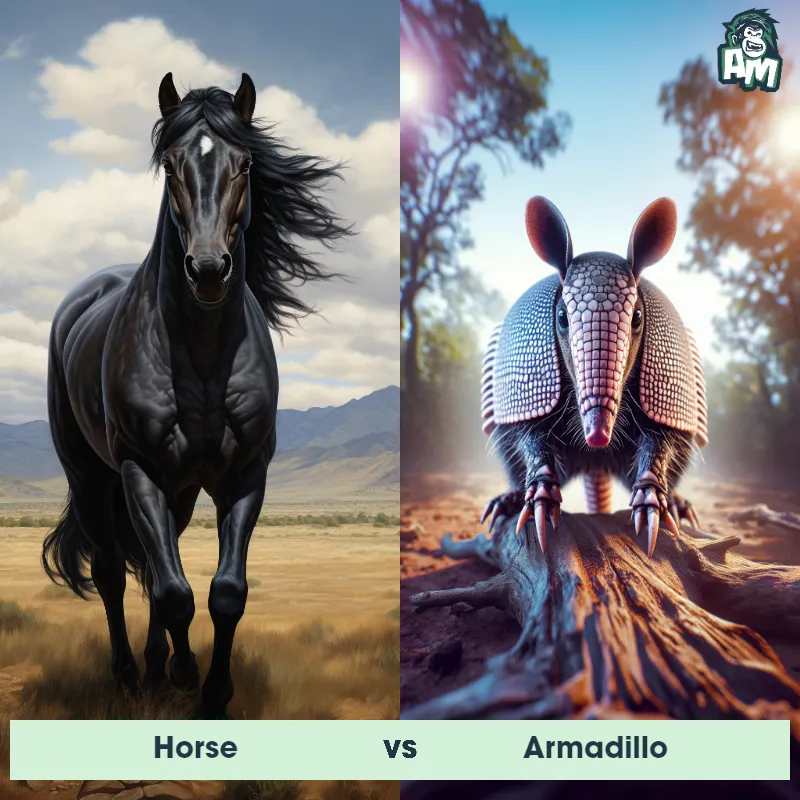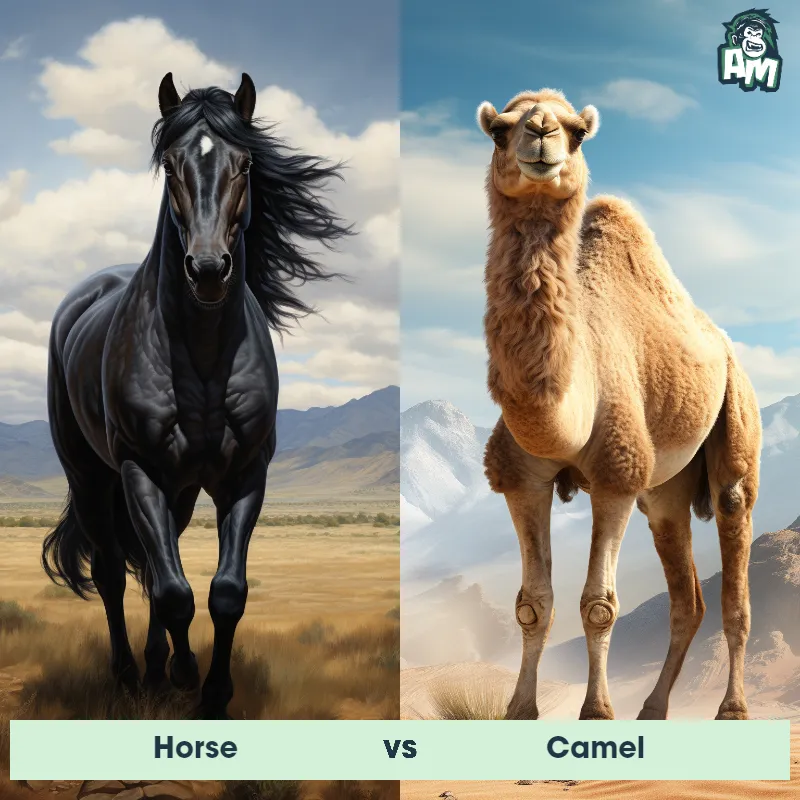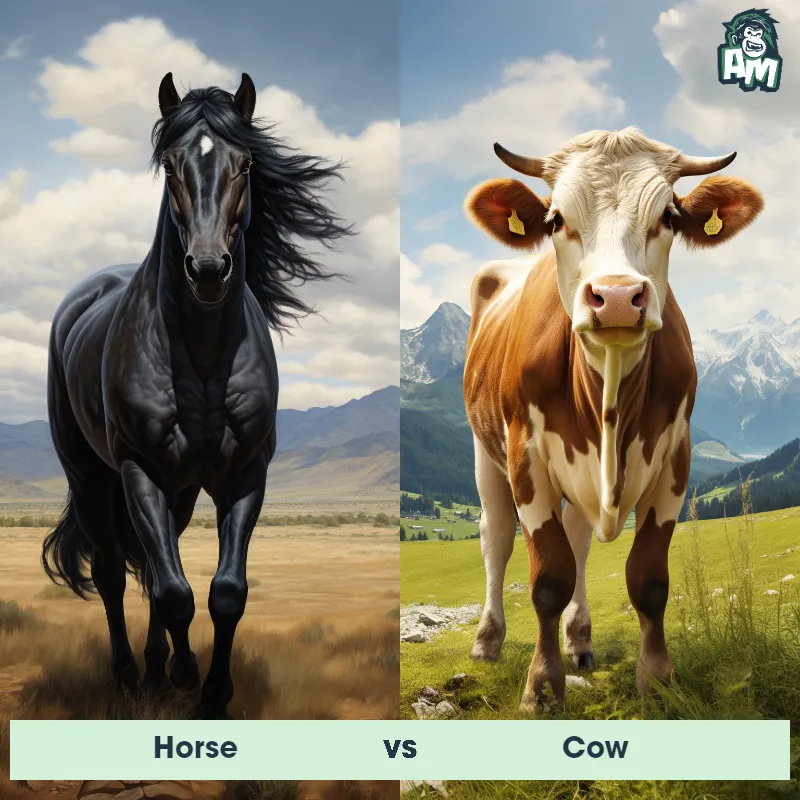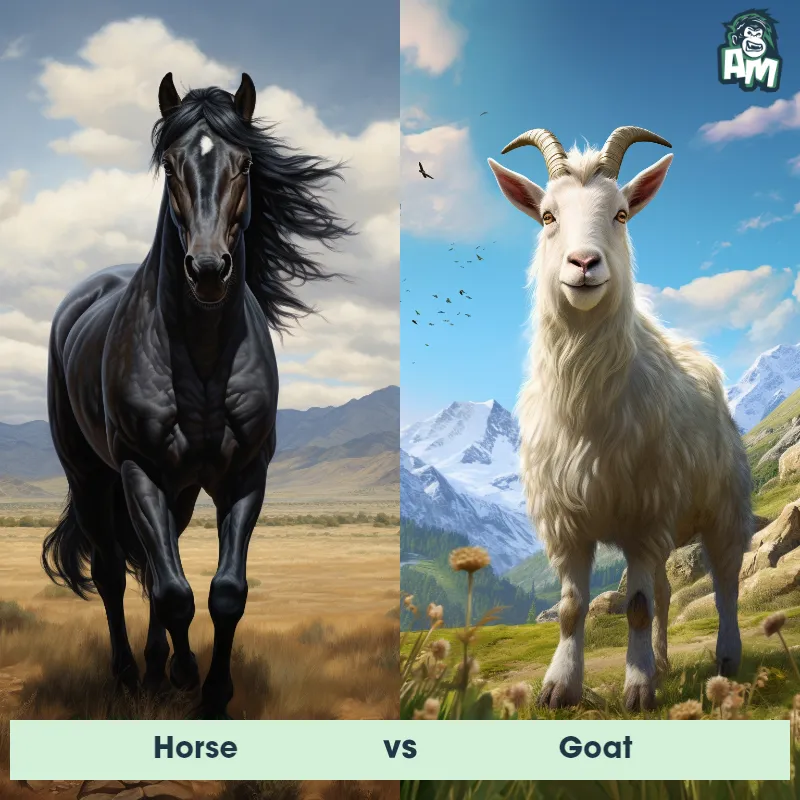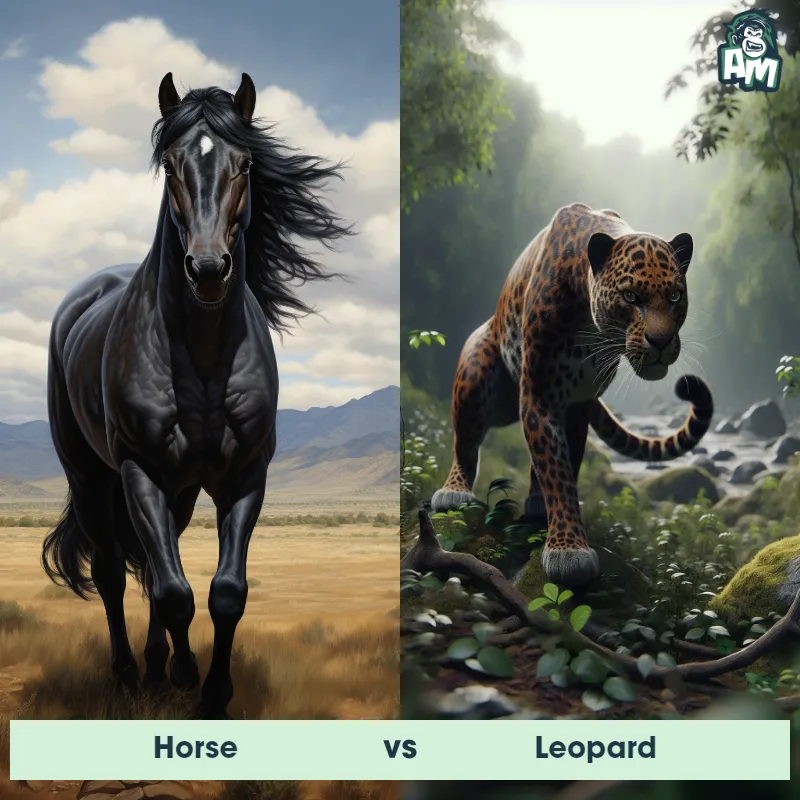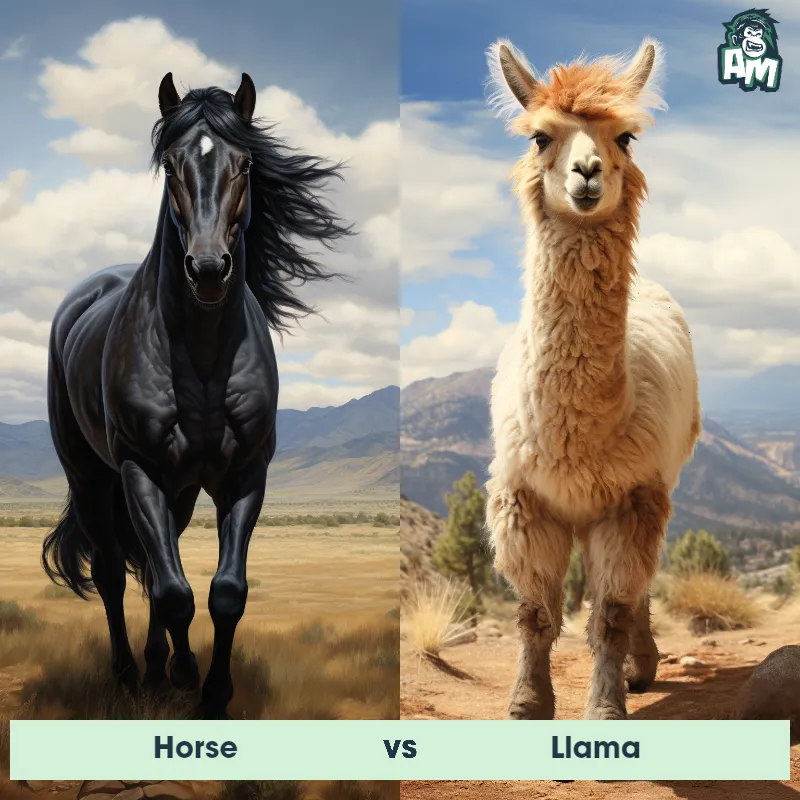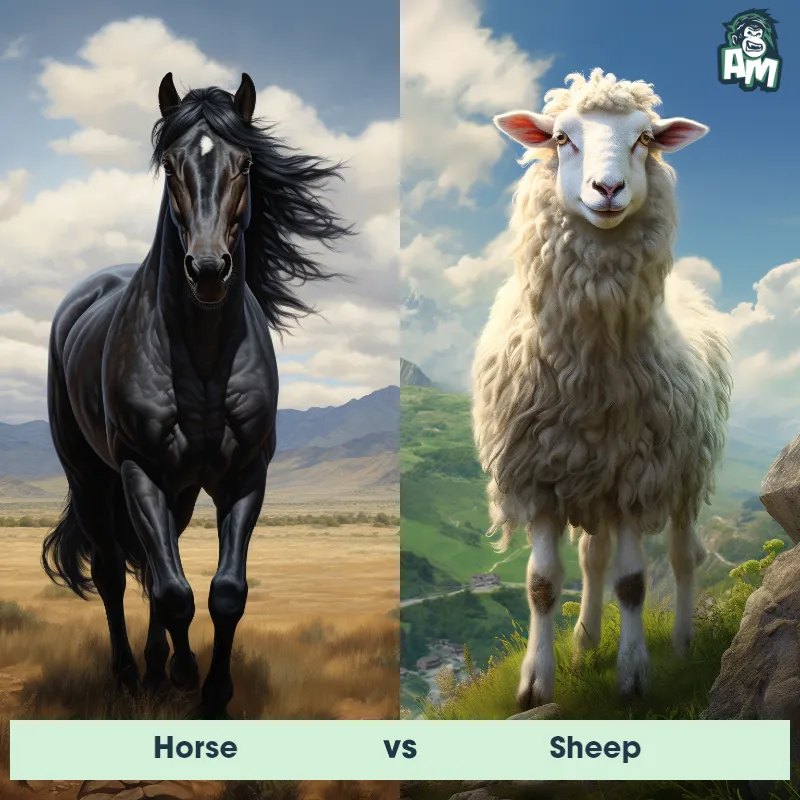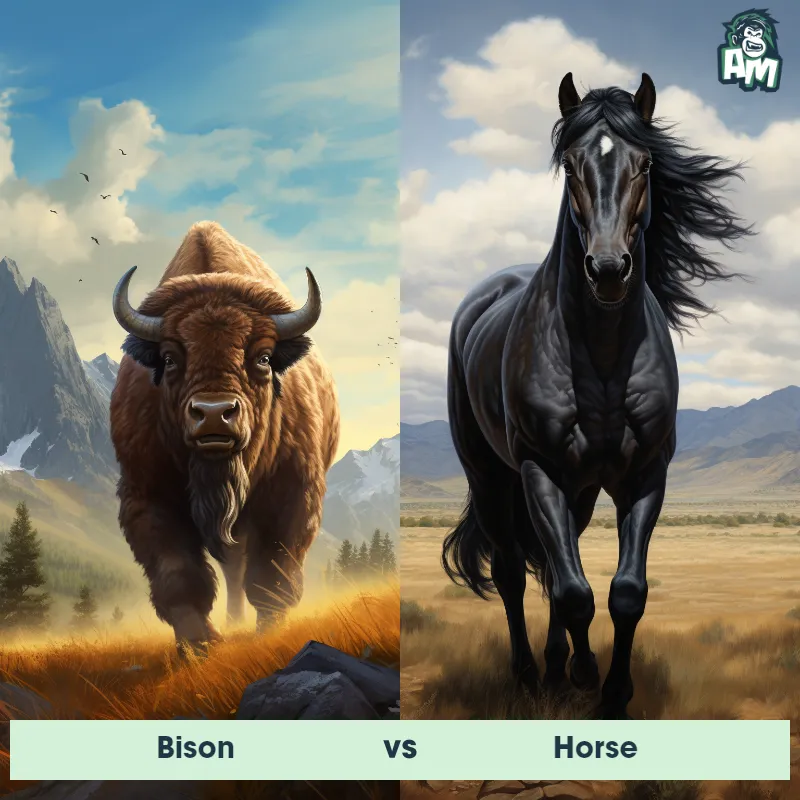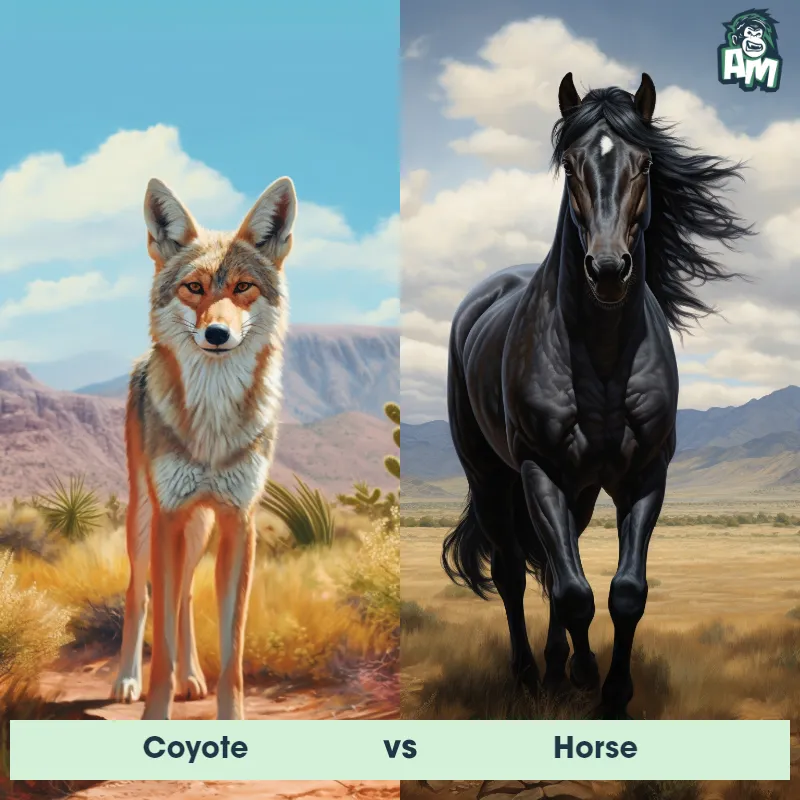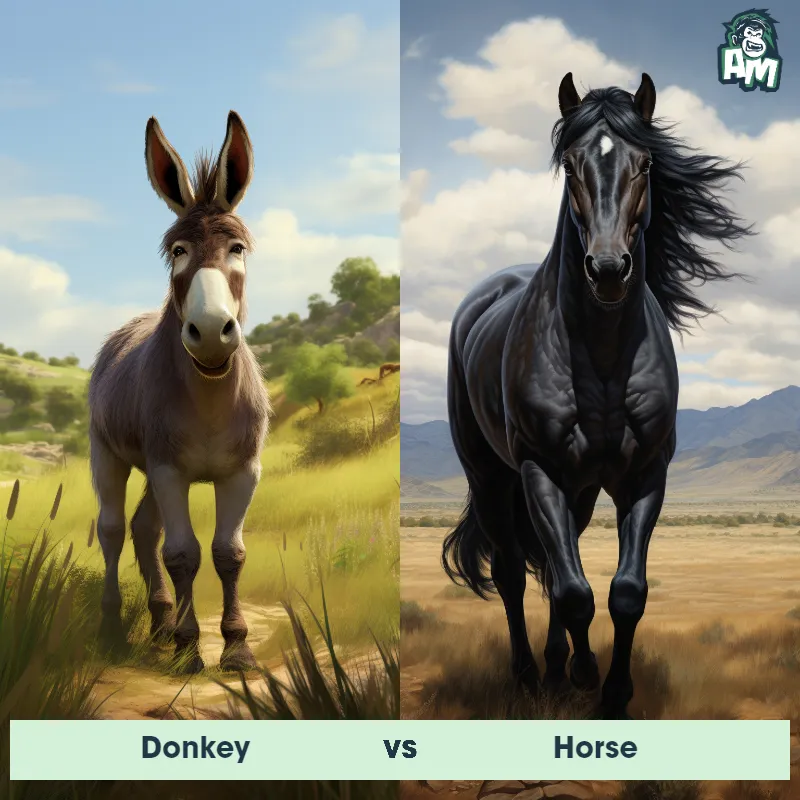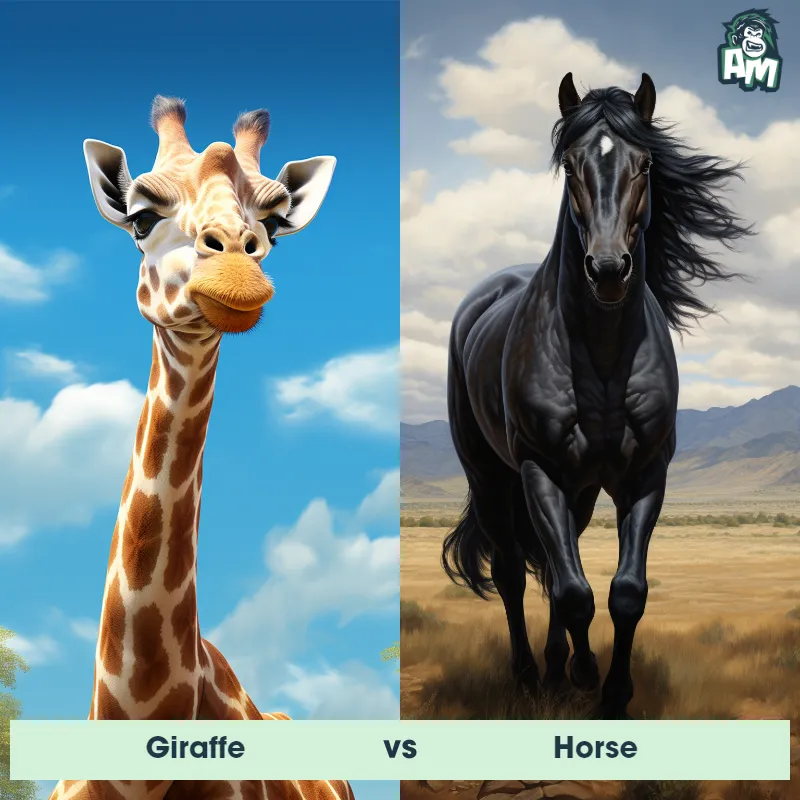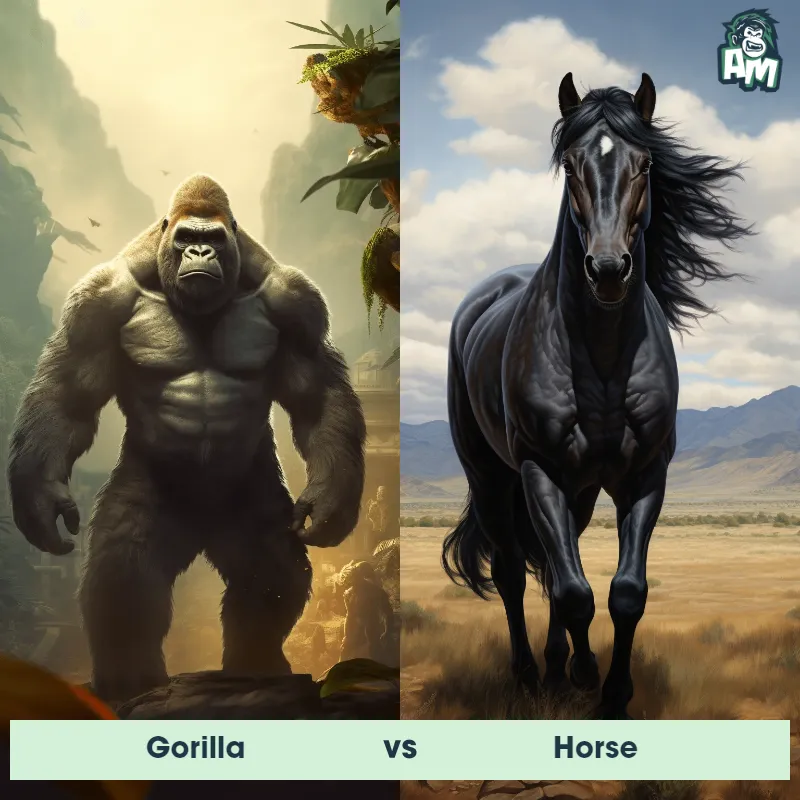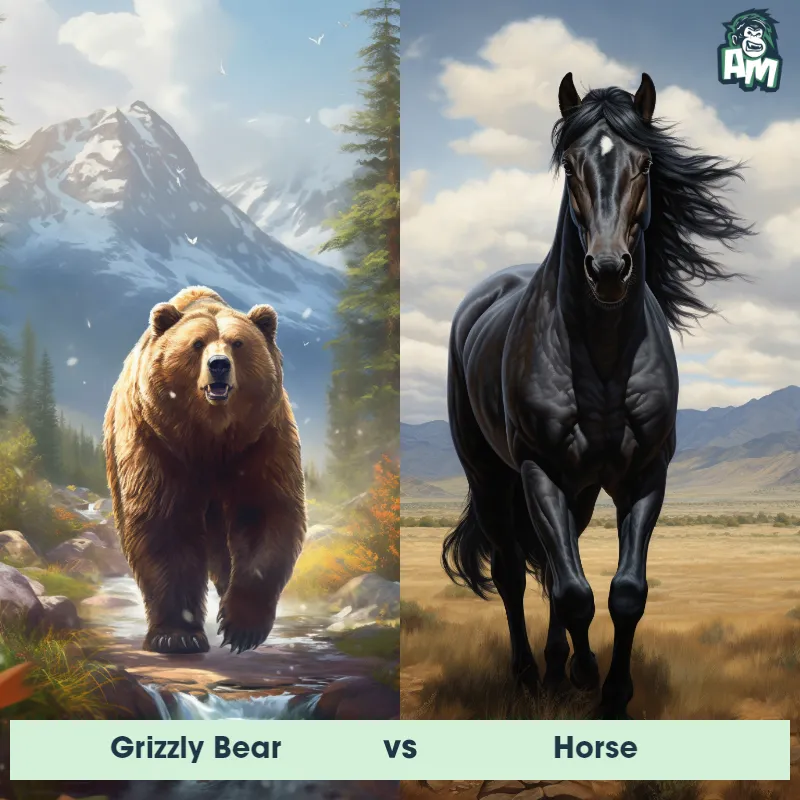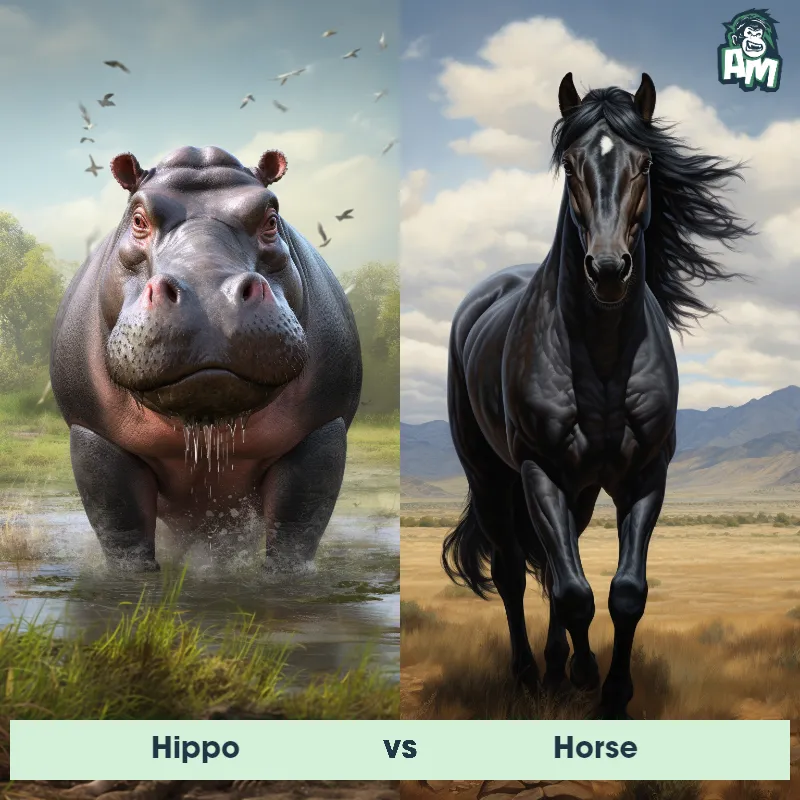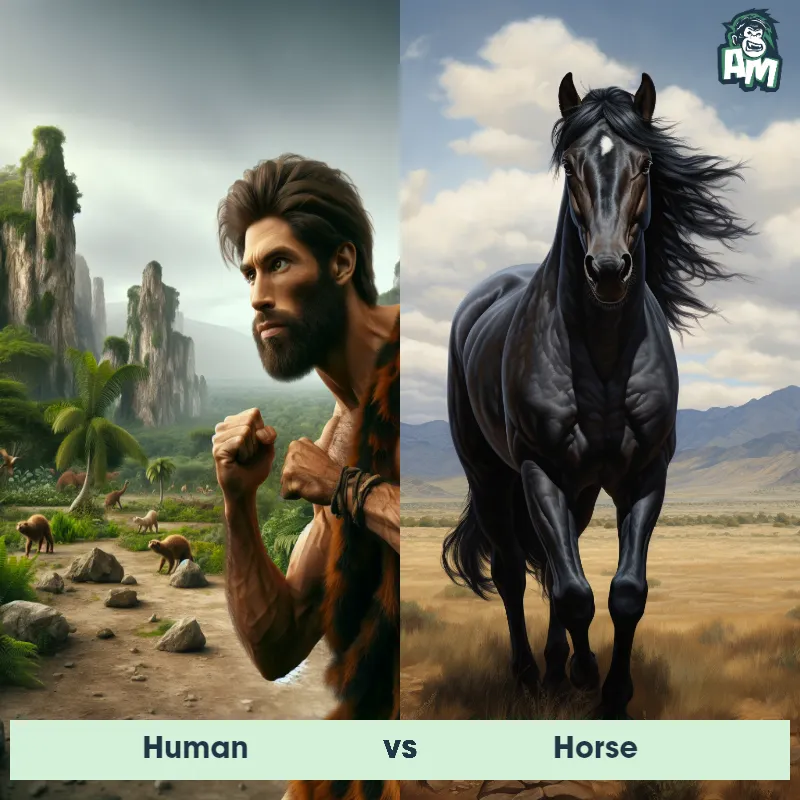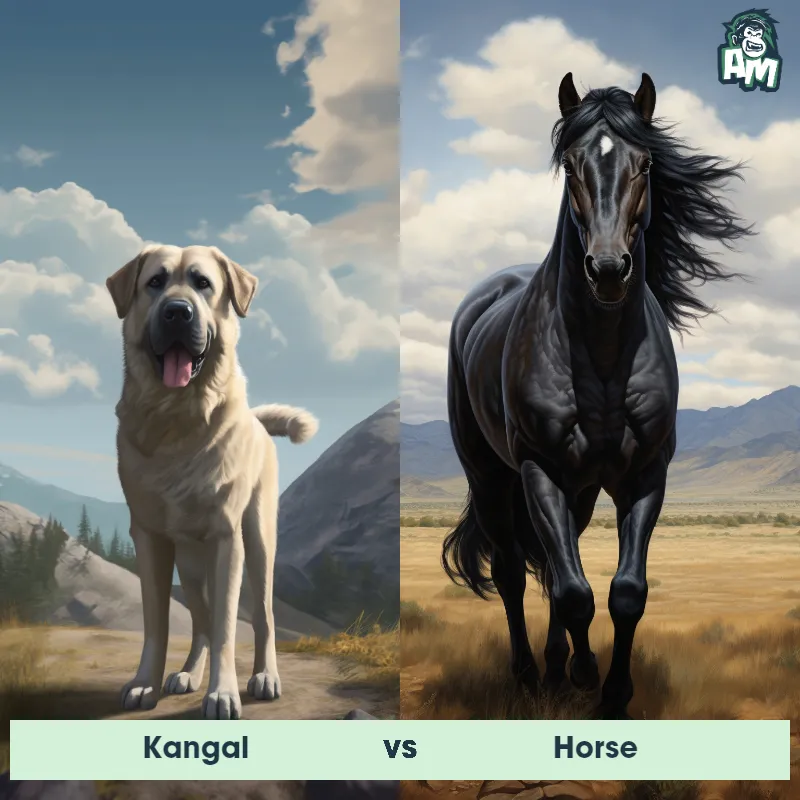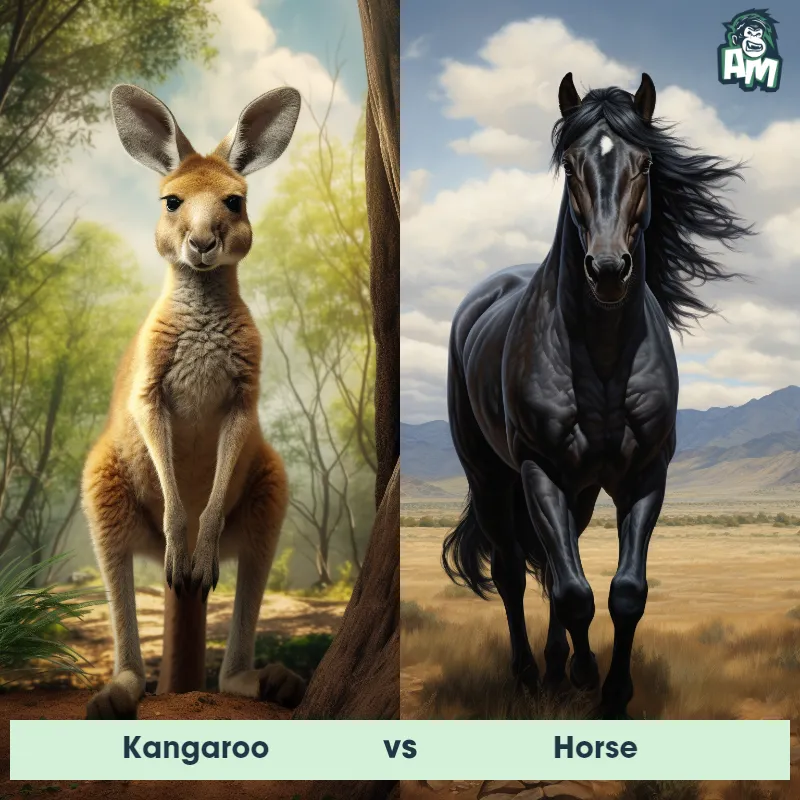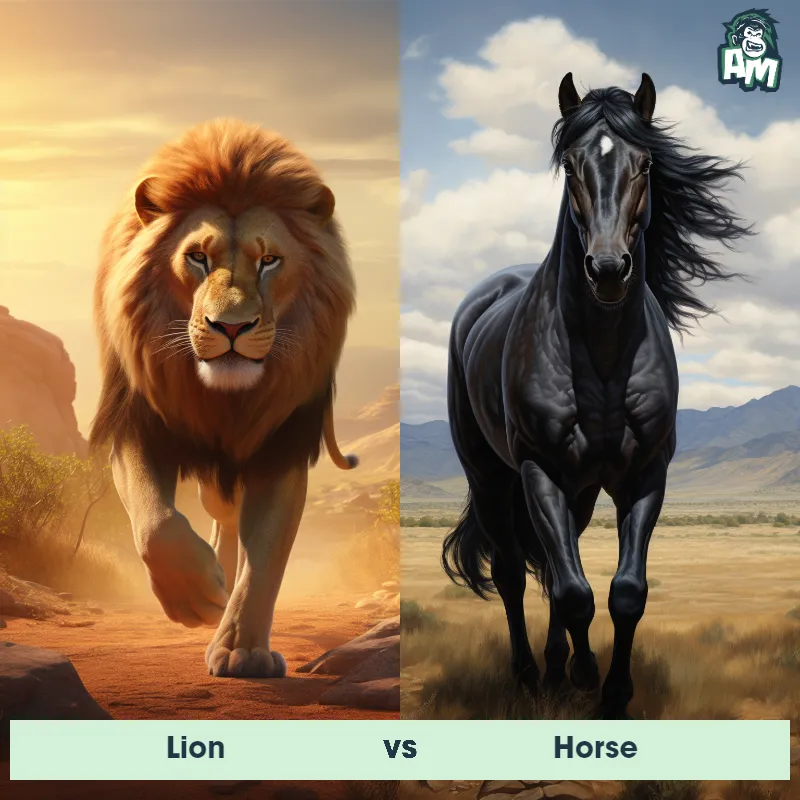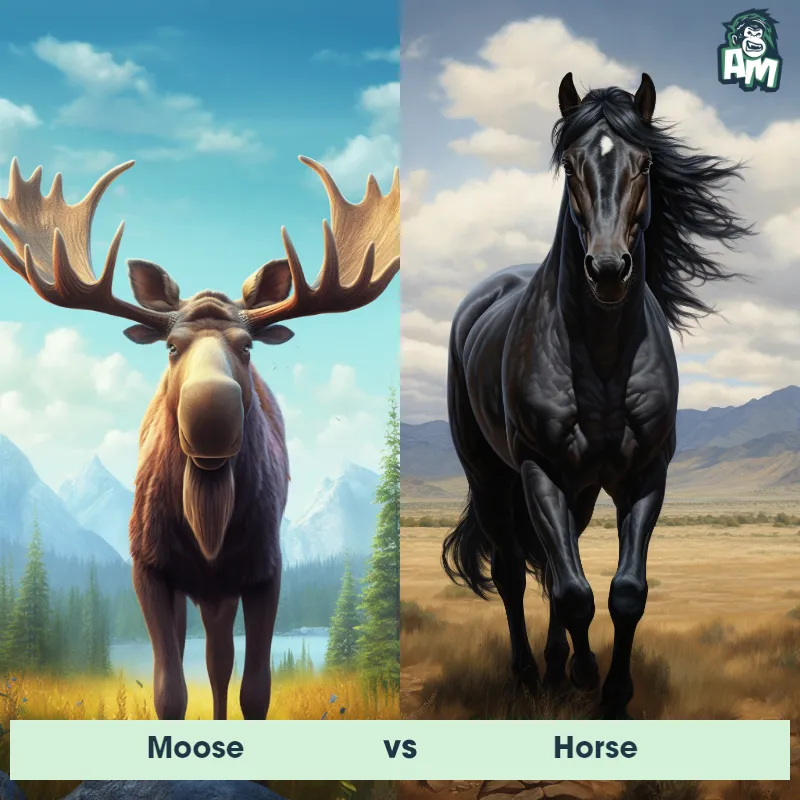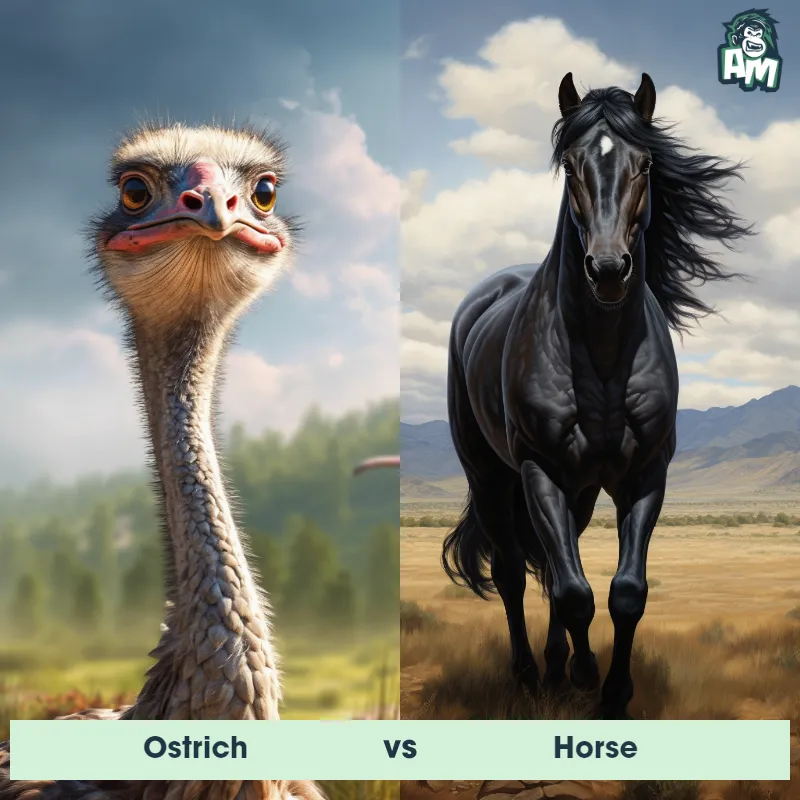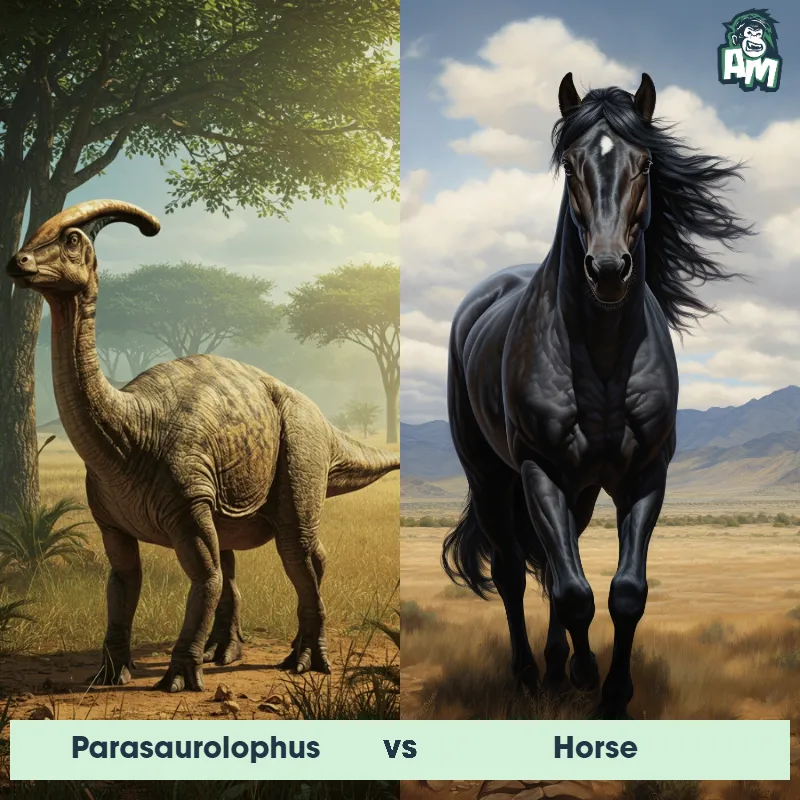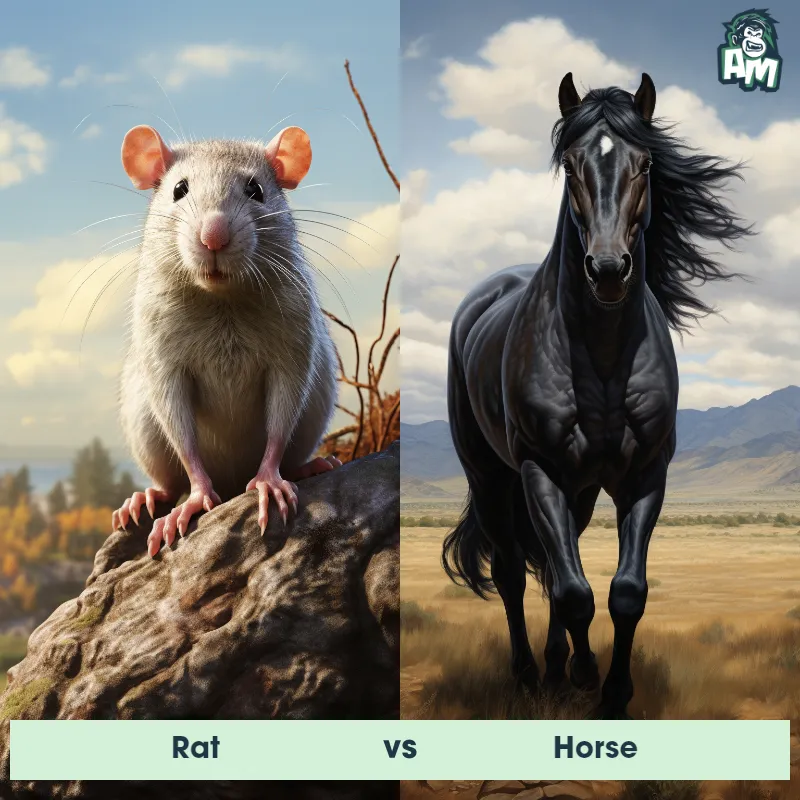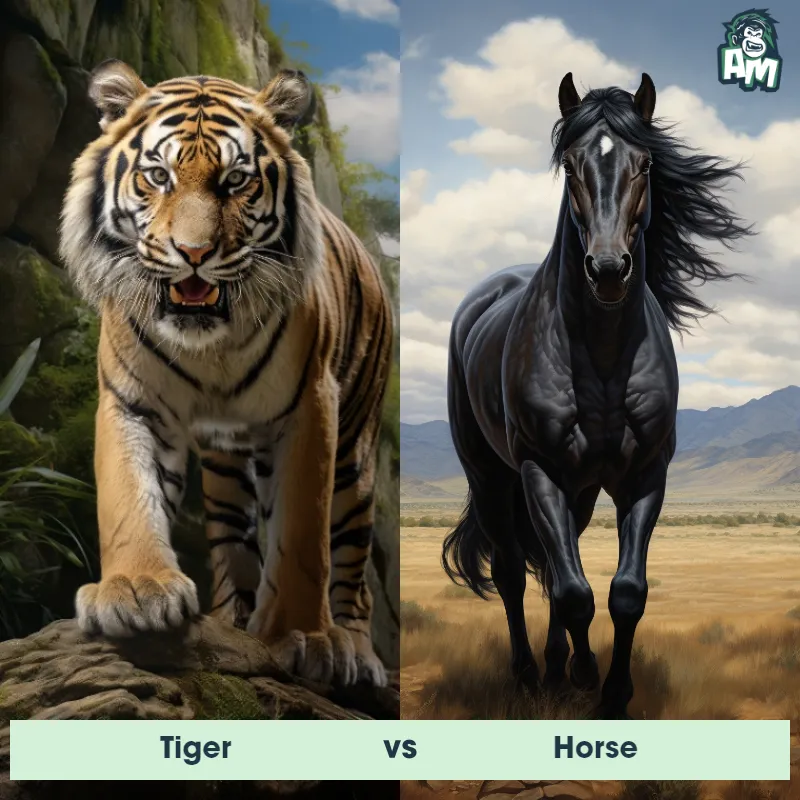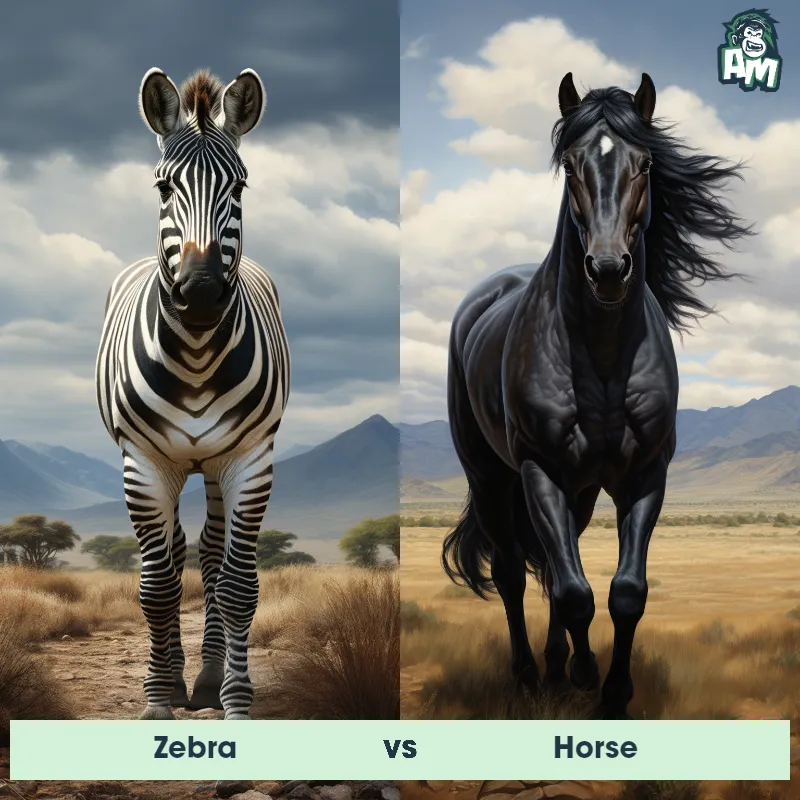The Horse
The horse, also known as Equus caballus, is a large, herbivorous mammal belonging to the Equidae family. Horses typically have a strong and muscular body with a long, flowing mane and tail. They are known for their remarkable speed and endurance, which makes them excellent for various purposes ranging from racing and riding to working in agriculture. Horses have a unique hoof structure with a single toe per foot. They come in various breeds, each with its distinct physical characteristics and temperaments.
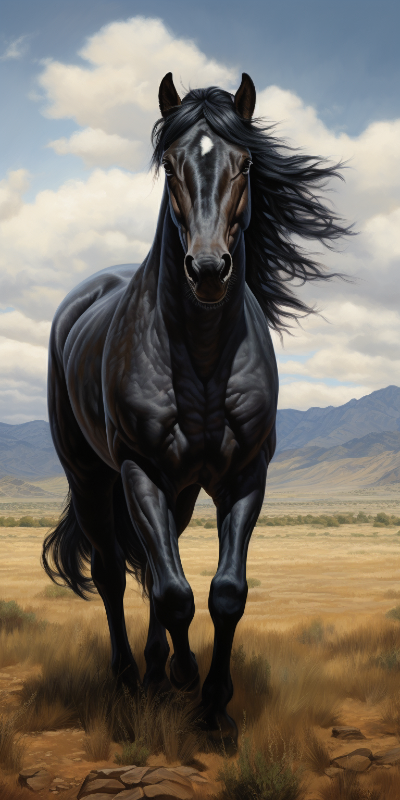
| Horse | |
|---|---|
| Size | 4.5 - 6 feet at the shoulder (1.4 - 1.8 meters) |
| Weight | 900 - 2200 pounds (410 - 1000 kilograms) |
| Speed | 55mph (88km/h) |
| Key Strength | Speed and powerful kicks |
| Biggest Weakness | Lack of natural weapons (like claws or sharp teeth) |
| Scientific Name | Equus ferus caballus |
| Family | Equidae |
| Habitat | Grasslands, Deserts, and Forests |
| Geography | Worldwide |
| Diet | Herbivore (Primarily grass, hay, and grains) |
| Lifespan | 25 years - 30 years |

The Horse
The horse, also known as Equus caballus, is a large, herbivorous mammal belonging to the Equidae family. Horses typically have a strong and muscular body with a long, flowing mane and tail. They are known for their remarkable speed and endurance, which makes them excellent for various purposes ranging from racing and riding to working in agriculture. Horses have a unique hoof structure with a single toe per foot. They come in various breeds, each with its distinct physical characteristics and temperaments.
![[object Object] Gif](https://tenor.com/view/horse-fight-viralhog-animal-brawl-animal-scuffle-gif-14740911035351561444.gif)
Fun Fact: Horses have the largest eyes of any land mammal, measuring around 2.5 cm in diameter, which helps them have a wide and panoramic vision across almost 360 degrees.
| Horse | |
|---|---|
| Size | 4.5 - 6 feet at the shoulder (1.4 - 1.8 meters) |
| Weight | 900 - 2200 pounds (410 - 1000 kilograms) |
| Speed | 55mph (88km/h) |
| Key Strength | Speed and powerful kicks |
| Biggest Weakness | Lack of natural weapons (like claws or sharp teeth) |
| Scientific Name | Equus ferus caballus |
| Family | Equidae |
| Habitat | Grasslands, Deserts, and Forests |
| Geography | Worldwide |
| Diet | Herbivore (Primarily grass, hay, and grains) |
| Lifespan | 25 years - 30 years |
Match Highlights
Horse Matchups
We use AI to simulate matchups between the Horse and other animals. Our simulation considers size, strength, and natural predatory behaviors to determine the most likely outcome.
Horse: Diet, Predators, Aggression, and Defensive Behaviors
What do Horses eat?
Horses are herbivores and mainly feed on grass, hay, and grains. Horse have a complex digestive system that is designed to process large amounts of roughage. Horse also require access to fresh water at all times to stay hydrated and healthy.
Do Horses have any predators?
In the wild, horses have predators such as wolves, mountain lions, and bears. However, domesticated horses are typically kept in environments where predators are not a significant threat. Proper fencing and secure enclosures help protect horses from potential predators.
Are Horses aggressive?
Horses are generally gentle and social animals, but Horse can become aggressive if Horse feel threatened or if Horse are not handled properly. Aggression in horses can be displayed through behaviors such as biting, kicking, or charging. Proper training and handling can help prevent aggressive behaviors in horses.
Do Horses fight?
Horses are known to establish a social hierarchy within their herd through interactions such as biting, kicking, and chasing. These interactions are a natural part of their social behavior and are typically not harmful. However, fights between horses can occur if Horse feel threatened or are competing for resources such as food or water.
How do Horses defend themselves?
Horses have various natural defense mechanisms to protect themselves from threats. Horse can kick with great force using their powerful hind legs, bite with their strong jaws, and use their speed and agility to flee from danger. Horses also have a flight response, meaning Horse are more likely to run away from a threat rather than confront it.
What is the biggest weakness of Horses in a fight?
Despite their strength and speed, horses have a few vulnerabilities in a fight. One of their biggest weaknesses is their relatively fragile legs, which can be susceptible to injuries if Horse are kicked or if Horse run on uneven terrain. Additionally, horses can become overwhelmed by larger predators or multiple attackers, as their natural instinct is to flee rather than stay and fight.
Fun Fact: While many animals have regional accents or dialects, horses also have their own way of communicating with each other through a complex system of sounds and body language, allowing them to convey different messages and establish hierarchies within their social groups.
Fun Fact: Horses are excellent at recognizing human emotions through facial expressions. Studies have shown that they can differentiate between happy and angry faces, showing that they have a remarkable ability to perceive and respond to human emotions.



